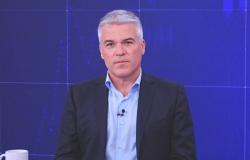In what areas does music have benefits?
For each musical behavior there are lines of investigation. There is musical listening, singing, performance, improvisation, composition, imagery (imagining a song). Each has different effects and benefits. We may not be musicians, in the sense of having the ability to express ourselves or produce music, namely singing or playing an instrument, but, if we do not have a hearing deficit, we are all good listeners. From our mother’s womb until we die, we are subject and exposed to the music of the places where we were born and live. When we listen to music, the brain processes melody, rhythm and harmony. There is no exclusive brain area for music, as there is for language. Music and its components activate different areas of the brain. Auditory, visual, but also motor and pre-motor sensory areas, because this is how they prepare us to sing and dance. Audiomotor synchronization can be developed in rehabilitation programs. At Garcia de Orta Hospital, users who had a stroke [acidente vascular cerebral] or brain aneurysms, and who had walking deficits, one of the ways to recover was through listening to music and dancing. One patient, upon returning to dancing quizomba, managed to recover her entire motor area. Music also has applications in neurological diseases, such as Alzheimer’s and Parkinson’s. And in neurodevelopmental diseases, such as premature babies and autism spectrum disorders. These children have difficulties communicating. Many may not be able to speak, but, it has been proven, they can sing. Autism is a neurodevelopmental disease in which there are difficulties with brain connectivity. Music facilitates this connectivity.
What other brain areas are activated?
The areas linked to the processing of emotions. When we really like a song, we feel pleasure, because the reward and motivational circuits are activated. Dopamine is produced, which makes us feel great. And why do you normally like listening to music? Because it helps with emotional regulation. Music ends up filling an emotional need. Sometimes we are sad and want to listen to a certain song because we think it makes us feel good at that moment.
What if we like the music?
The music we prefer usually has more effects. There is a story associated with your hearing. We activate memory areas, but also motor and pre-motor areas. When we listen to music we really like, we release dopamine in the reward zones of the brain. Music activates the reward, pleasure, motivational zones, such as eating, as well as any other activity that we enjoy doing. Sexual activity, too. Music, somehow, did not disappear from the human species, because there are biological advantages in having musical behaviors, whether for our emotional regulation or, as Charles Darwin would say, for sexual selection. Probably, people who are more musical, or who sing, or who play an instrument, end up being more sexually attractive. Hence the idols in adolescence. This ends up, in some way, guaranteeing the continuity of the species. And it can also include dance, of course, because it is music and movement. That is why music, in my opinion, and from the point of view of evolutionary theories, shows that, without a doubt, there is a biological advantage for the human species in having music.
And the singing?
It also has physical and emotional benefits, as it increases breathing capacity and makes us feel good. Hence the expression “whoever sings his evils scares away”. When people sing in choir they see the social aspect greatly improved. It provides a sense of identity, cohesion, unity in a common goal. It improves the behavior of elderly people, who discuss health problems, become more interested in solving them and going to the doctor, seeking help earlier than people isolated at home. In Europe, there are at least 37 million choir members. They give meaning and a purpose in life to very lonely people. When bands are created in their institutions, music can give an identity and a social role to young people with neurodevelopmental problems, children with disabilities and, eventually, autism. Feeling part of a project brings well-being. In 1948, the WHO defined that health is not the absence of disease, but complete physical, mental and social well-being. And music fills these areas.






